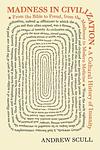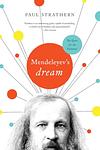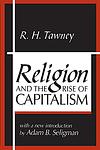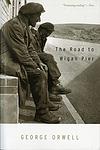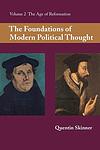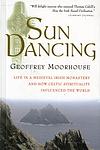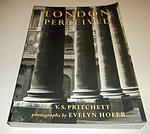The Greatest French, British "European History" Books of All Time
Click to learn how this list is calculated.
This list represents a comprehensive and trusted collection of the greatest books. Developed through a specialized algorithm, it brings together 305 'best of' book lists to form a definitive guide to the world's most acclaimed books. For those interested in how these books are chosen, additional details can be found on the rankings page.
Genres
European History is a category of books that focuses on the historical events, people, and cultures of Europe. It covers a wide range of topics, including the ancient civilizations of Greece and Rome, the Middle Ages, the Renaissance, the Enlightenment, and the modern era. This category of books explores the political, social, economic, and cultural developments that have shaped Europe over the centuries, from the rise and fall of empires to the impact of wars and revolutions. It provides readers with a deeper understanding of the rich and complex history of Europe and its influence on the world.
Countries
Date Range
Reading Statistics
Click the button below to see how many of these books you've read!
Download
If you're interested in downloading this list as a CSV file for use in a spreadsheet application, you can easily do so by clicking the button below. Please note that to ensure a manageable file size and faster download, the CSV will include details for only the first 500 books.
Download-
26. Combats Pour L'histoire by Lucien Febvre
"Combats Pour L'histoire" is a collection of essays by a prominent historian who was a key figure in developing the Annales School of historical thought. In this work, the author passionately argues for a new approach to studying history, one that moves beyond the traditional focus on political events and great men to include a broader analysis of social and economic factors, mentalities, and the structures that shape human activity over time. The book emphasizes the importance of interdisciplinary research, incorporating insights from geography, sociology, and anthropology to create a more nuanced and dynamic understanding of the past. The author's advocacy for this methodological shift has had a lasting impact on the field of history, encouraging generations of scholars to explore the complex interplay of forces that influence historical change.
The 3281st Greatest Book of All Time -
27. The Struggle For Mastery In Europe by A. J. P. Taylor
The book provides a comprehensive analysis of European international politics from the aftermath of the Napoleonic Wars to the outbreak of World War I. It examines the complex system of alliances, crises, and diplomatic maneuvers that characterized the continent during the 19th century, focusing on the quest for dominance among the great powers. The narrative delves into the balance of power principle, the role of nationalism, and the impact of economic and military factors on the relationships between countries such as Britain, France, Germany, Austria-Hungary, Russia, and Italy. Through a detailed account of treaties, wars, and diplomatic strategies, the work explores how the struggle for supremacy shaped the modern European state system and sowed the seeds for future conflicts.
The 3281st Greatest Book of All Time -
28. Madness And Civilization by Michel Foucault
The book is a profound and critical exploration of the history of the treatment of the mentally ill in Western society, tracing the shifting boundaries between madness and sanity from the Middle Ages to the end of the 18th century. The author argues that the way people with mental illness were treated was a reflection of the cultural, social, and intellectual mores of the time. He examines the evolution of institutions such as asylums and the role of medical and philosophical discourse in defining and managing madness, suggesting that the treatment of the mentally ill has often been a way of exerting social control rather than a genuine effort to help those suffering. The work challenges readers to reconsider the relationship between reason, unreason, and the structures of power and knowledge.
The 3281st Greatest Book of All Time -
29. Mendeleyev's Dream by Paul Strathern
This book traces the history of chemistry from the ancient philosophers' wild speculations about the composition of the universe to the creation of the periodic table by Dmitri Mendeleyev. Through a blend of storytelling and science, it explores the development of atomic theory and chemical elements, leading up to Mendeleyev's groundbreaking dream in which he envisioned the periodic table in its modern form. The narrative delves into the lives and discoveries of key figures in the field of chemistry, illustrating how their work contributed to our understanding of the elements that make up the world around us.
The 3418th Greatest Book of All Time -
30. Religion And The Rise Of Capitalism by R. H. Tawney
"Religion and the Rise of Capitalism" is a comprehensive exploration of the historical relationship between the development of capitalism and the evolution of religious thought, particularly Protestant Christianity. The author delves into the moral and ethical dimensions of capitalism, arguing that its growth was significantly influenced by certain religious ideas. The book also discusses how religious beliefs have shaped economic systems and societal norms, and how these, in turn, have impacted religion.
The 3439th Greatest Book of All Time -
31. Armenian Atrocities: The Murder of a Nation by Arnold J. Toynbee
This book provides a comprehensive historical account of the Armenian genocide that took place during World War I. The author meticulously documents the systematic extermination of the Armenian people by the Ottoman Empire, using a variety of sources including eyewitness accounts, diplomatic reports, and official documents. The book also explores the international response to the genocide and the subsequent denial and cover-up by the Turkish government.
The 3464th Greatest Book of All Time -
32. Mary Queen Of Scots by Antonia Fraser
This historical biography delves into the tumultuous life of a sixteenth-century queen who became a figure of romantic tragedy. Born into a world of political intrigue, she ascended to the Scottish throne as an infant and was later married to the French Dauphin, becoming queen consort of France. Her reign was marked by a series of ill-fated marriages, complex political maneuvers, and religious upheaval. Ultimately, she was imprisoned and executed by her cousin, the Queen of England, after being implicated in a plot to claim the English crown. The book provides a detailed examination of her life, the challenges she faced, and her enduring legacy in history.
The 3464th Greatest Book of All Time -
33. The Road to Wigan Pier by George Orwell
This book is a sociological exploration of the bleak living conditions among the working class in Lancashire and Yorkshire, England, in the 1930s. The author, who lived among the people, vividly describes the hardships of the poor and criticizes the systems that make them so. The latter part of the book presents a discussion on class and possible socialist solutions to the issues presented in the first part. It's a powerful critique of British society at the time and a call for better conditions for the working class.
The 3464th Greatest Book of All Time -
34. The Foundations Of Modern Political Thought by Quentin Skinner
This book is a seminal work in intellectual history, offering a comprehensive analysis of the development of political thought during the Renaissance and the Reformation. The author meticulously examines the evolution of key political concepts and the context in which they arose, tracing the transition from medieval to early modern political theory. The text delves into the writings of influential thinkers and the impact of their ideas on the structure of government and the nature of individual rights, ultimately providing a detailed understanding of the origins of modern political ideologies and institutions.
The 3616th Greatest Book of All Time -
35. Russian Thinkers by Isaiah Berlin
The book is a collection of essays exploring the ideas of key 19th-century Russian intellectuals who shaped the social, political, and cultural contours of their time. It delves into the works and impact of thinkers such as Alexander Herzen, Ivan Turgenev, and Leo Tolstoy, examining their contributions to debates on Russian identity, the role of the intelligentsia, and the future of their nation. The author critically analyzes the ideological conflicts between Westernizers and Slavophiles and the struggle to reconcile Western European liberal thought with uniquely Russian conditions, offering insights into the philosophical underpinnings of Russia's historical trajectory.
The 3616th Greatest Book of All Time -
36. The Order of Things by Michel Foucault
"The Order of Things" is a philosophical exploration of the historical changes in the human sciences, including economics, natural history, and philology. The author delves into the concept of 'epistemes' or the unconscious rules that govern the way people perceive the world, and how these have changed over the centuries. The book challenges the idea that knowledge has progressively improved over time, instead suggesting that each era has its own unique framework for understanding and interpreting the world.
The 3641st Greatest Book of All Time -
37. English Society In The Eighteenth Century by Roy Porter
This book offers a comprehensive exploration of the social landscape of 18th-century England, delving into the diverse aspects of daily life and the remarkable transformations that characterized the era. It examines the intricate fabric of English society, from the lives of the aristocracy to the conditions of the poor, and how the age was shaped by factors such as urbanization, commercialization, and the Enlightenment. The narrative captures the contrasts and contradictions of the period, revealing how advancements in education, culture, and industry coexisted with persistent inequality and social strife, painting a vivid picture of a dynamic and evolving society.
The 3694th Greatest Book of All Time -
38. Nations And Nationalism by Ernest Gellner
This book presents a theoretical exploration of the concept of nationalism, the social conditions fostering it, and its role in the modern world. The author argues that nationalism is a product of industrial society, which necessitates a homogenous culture for communication and a centralized education system to sustain the industrial and economic structure. The work critically examines the origins and implications of nationalism, suggesting that it is not an ancient phenomenon but rather a relatively recent one that arises when a society transitions from agrarian to industrial. The author contends that nationalism serves to align the political and national unit, without necessarily corresponding to pre-existing ethnic or cultural identities, and is a political principle that holds that the political and the national unit should be congruent.
The 4124th Greatest Book of All Time -
39. Chronicles by Jean Froissart
The book in question is a historical narrative that provides a detailed account of the events, politics, and warfare of the 14th century, particularly focusing on the Hundred Years' War between England and France. The author, a medieval French chronicler, compiled extensive anecdotes, interviews, and reports, offering readers a vivid portrayal of the chivalric age, the lives of nobility, the impact of battles, and the social and political dynamics of the time. His work is considered one of the most important primary sources for the period it covers, offering a blend of factual history and the author's own interpretations and biases, reflecting the complex tapestry of medieval European society.
The 4157th Greatest Book of All Time -
40. Staying Power: The History of Black People in Britain by Peter Fryer
"Staying Power: The History of Black People in Britain" is a comprehensive account of the African diaspora in Britain from Roman times to the present day. The book explores the various contributions of Black people to the British society, culture, and economy, challenging the traditional narrative that Black presence in Britain began with the Windrush generation. The author delves into the struggles, achievements, and resilience of Black people in Britain, offering a nuanced and detailed historical perspective.
The 4583rd Greatest Book of All Time -
41. The Reason Why by Cecil Woodham-Smith
"The Reason Why" is a historical narrative that explores the circumstances leading to the infamous Charge of the Light Brigade during the Crimean War. The book delves into the lives and personalities of key figures involved, including Lord Cardigan and Lord Lucan, highlighting their personal rivalries, political machinations, and the miscommunications that led to the disastrous military action. The narrative is meticulously researched and provides a detailed account of the event, shedding light on the complexities of British military bureaucracy and the tragic consequences of poor leadership.
The 4927th Greatest Book of All Time -
42. The Stones Of Venice by John Ruskin
The book in question is a treatise on Venetian art and architecture, focusing on the city's Byzantine, Gothic, and Renaissance periods. It provides a detailed analysis of the construction and ornamentation of buildings, emphasizing the importance of craftsmanship and the moral and social implications of architectural styles. The author argues that the true value of architecture lies in its expression of the cultural and spiritual ideals of the society that produces it, and he critiques modern trends that prioritize functionality over beauty and meaning. The work is also notable for its rich descriptions of Venice's aesthetic and its influence on the Gothic Revival movement in architecture.
The 5289th Greatest Book of All Time -
43. The Age Of Extremes by Eric Hobsbawm
"The Age of Extremes" is a historical analysis that explores the tumultuous period of the 20th century, spanning from 1914 to 1991. This work delves into the profound transformations and conflicts that defined the era, including the two World Wars, the Cold War, the rise of fascism and communism, and the eventual collapse of the Soviet Union. The book examines the impact of economic crises, technological advancements, and social changes on global societies, offering insights into how these extreme conditions shaped the modern world and its political landscapes. The narrative combines a detailed account of historical events with a critical evaluation of their economic and cultural implications, providing a comprehensive overview of a century marked by both unprecedented progress and devastating turmoil.
The 5322nd Greatest Book of All Time -
44. Sun Dancing by Geoffrey Moorhouse
"Sun Dancing" presents a vivid tapestry of medieval Irish monasticism, combining historical facts with imaginative storytelling. The book delves into the austere and spiritually intense lives of monks on Skellig Michael, a remote island off the Irish coast, during the early centuries of Christianity in Ireland. Through a blend of narrative and analysis, the text explores the harsh realities of monastic life, the cultural and religious contributions of these communities, and the broader context of Irish and European history during this period. The author weaves together the daily routines, spiritual practices, and legendary tales of these monks, providing a window into a world where faith and endurance converge amidst the isolation of the Atlantic Ocean.
The 5395th Greatest Book of All Time -
45. The Coming Of The French Revolution by Georges Lefebvre
"The Coming of the French Revolution" provides a detailed analysis of the social, political, and economic factors that led to the French Revolution in 1789. The book examines the roles played by various classes of society, including the peasantry, bourgeoisie, and nobility, and highlights the escalating tensions that culminated in a profound transformation of the French state. The author uses a Marxist perspective to explore the class struggles and the rise of revolutionary ideas, illustrating how these elements combined to overthrow the old regime and set the stage for modern political changes.
The 5529th Greatest Book of All Time -
46. London Perceived by V. S. Pritchett
"London Perceived" is a richly descriptive exploration of England's capital, delving into the unique atmosphere, culture, and character that define the city. Through a combination of keen observations and evocative prose, the book captures the essence of London's diverse districts, historic architecture, and the vibrant life of its streets. The author's perceptive insights into the people, traditions, and ever-changing face of the metropolis paint a vivid picture that is both nostalgic and timeless, offering readers a deeply personal portrayal of the city as seen through the eyes of a seasoned observer.
The 5529th Greatest Book of All Time -
47. Feudal Society by Marc Bloch
"Feudal Society" is a comprehensive historical analysis that delves into the social, economic, and political structures of medieval Europe. The book explores the intricate system of feudalism, where society was hierarchically divided between kings, nobles, knights, and serfs, each bound by mutual obligations and duties. Through a detailed examination of legal documents, personal accounts, and other historical sources, the work illuminates how these relationships shaped European society from the ninth to the fifteenth century, influencing everything from land tenure and military service to legal jurisdiction and social norms. The study not only provides insights into the feudal system itself but also reflects on its long-term impacts on European history.
The 5529th Greatest Book of All Time -
48. Montaillou by Emmanuel Le Roy Ladurie
The book is a detailed historical study of the lives of the inhabitants of Montaillou, a small village in the French Pyrenees, during the early 14th century. Based on the meticulous records of Jacques Fournier, the Bishop of Pamiers who later became Pope Benedict XII, the book explores the daily lives, beliefs, and social structures of a medieval community. It particularly focuses on how the villagers, including peasants and shepherds, interacted with the Cathar heresy and the Inquisition's efforts to suppress it. The work provides an in-depth look at medieval European rural life, religious practices, and the impact of ecclesiastical authority on individual lives.
The 5674th Greatest Book of All Time -
49. The History Of Sexuality by Michel Foucault
"The History of Sexuality" explores the complex relationship between power and sexual discourse, arguing that since the 17th century, Western societies have not repressed sexuality but rather incited it, making it an object of public discourse. The author examines how power operates through the production of knowledge about sex and uses this perspective to challenge the conventional narrative that society has been progressively liberating sexuality from repression. The book delves into the ways in which sexual norms and power relations are intertwined, suggesting that the discourse on sexuality is a tool of power used to regulate both individual bodies and entire populations.
The 5727th Greatest Book of All Time -
50. London Labour and the London Poor by Henry Mayhew
This book provides a comprehensive look into the lives of the working poor in 19th century London. The author offers an in-depth analysis of the socio-economic conditions of the time, detailing the struggles and hardships faced by the city's lower classes. The book includes interviews with a wide range of people, from street-sellers and chimney sweeps to beggars and thieves, offering a vivid and often grim picture of Victorian London. It is considered an important social document for its first-hand account of the realities of urban poverty.
The 5751st Greatest Book of All Time
Reading Statistics
Click the button below to see how many of these books you've read!
Download
If you're interested in downloading this list as a CSV file for use in a spreadsheet application, you can easily do so by clicking the button below. Please note that to ensure a manageable file size and faster download, the CSV will include details for only the first 500 books.
Download

